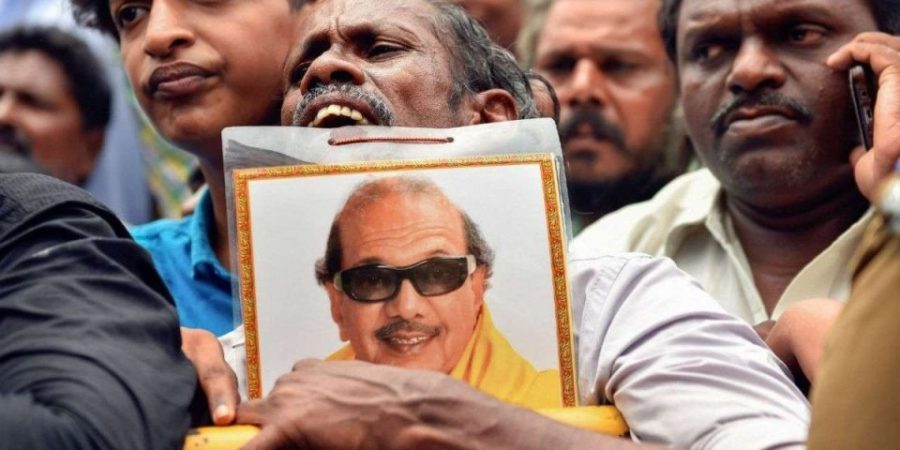
Revealed: 435 TN villages still practise caste discrimination; state turns blind eye
Despite publicly and passionately advocating 'social justice' in the state, the TN government in reality does little to fund activities to break caste stigmas, say activists

Even as the Tamil Nadu government projects itself as a state that fosters and champions social justice, as many as 435 villages still continue to shockingly practise caste-based discrimination.
The data obtained from the Social Justice and Human Rights (SJHR) wing of the police department via an RTI (Right to Information Act) query revealed that all these 435 villages are ‘atrocities prone’ and there are another 342 dormant ‘atrocities prone’ villages in the state. Tamil Nadu has a total of 15,979 villages, per the 2011 census.
Besides the number of villages identified by the SJHR wing, where caste-based discrimination exists, there are more villages where discrimination is still prevalent, but the cases might not have been reported in 2021, said K Samuel, general secretary of Tamil Nadu Discrimination Eradication Front.
“So, the villages identified by the department are less when compared to the ground reality,” he told The Federal.
Despite this dismal situation, the department has not been allocated any funds by the state government since 2016, to enable it to initiate any actions to eradicate caste-based discrimination in the villages.
Speaking to The Federal, an official with the SJHR wing of the police department said that the department has no funds for such campaigns and initiatives. “Whenever we get petitions from the people, we forward it to the government and get relief for the people. We mostly coordinate with the state government’s Adi Dravidar Welfare department and work as per their advice. Other than that we don’t get separate funds for campaigning,” the official said on condition of anonymity.
Also read: Student’s murder in TN school puts spotlight on ‘caste bands’
Social activist S Karthik from Madurai claimed that the government’s lackadaisical approach to eradicating caste-based discrimination shows that it is non-committal towards the cause it publicly advocates for in reality.
Social justice tea parties
“Had the government wanted to do it in its true spirit, it would have done as it did when Kalaingar (former Chief Minister M Karunanidhi) was CM of Tamil Nadu. For instance, in 2008, during Kalaingar’s regime, the SJHR department would conduct social justice tea parties in the villages, where both the caste-Hindus and the Dalits would be invited to take part to eradicate the twin tumbler system to an extent. But, there have been very few initiatives as such in recent times,” he alleged.
According to the SJHR wing, as many as 720 awareness meetings were held in the villages in the state in 2018, whereas only 366 meetings were held in 2020, 597 meetings in 2021 and 212 meetings held until March 2022.
The Social Justice Tea Party (SJTP) was initiated by Prateep V Philip IPS, when he was the inspector general of the SJHR wing. He also actively initiated other campaigns to break the social stigma over caste and caste-based discrimination in the villages in the state.
Speaking on this issue, Shalin Maria Lawrence, a social activist and writer, too felt that the numbers revealed by the state government are far less than the actual figures. “The State Vigilance Committee under the CM, which is responsible for finding and naming the villages practising untouchability, has not done anything in the last 30 years,” she said.
“According to Rule 16 of the SC/ST (Prevention of Atrocities) Rules, 1995, vigilance and monitoring committee meetings should be convened at least twice a year. In the last 30 years, in the place of 60 review meetings, only two have happened. Both the AIADMK and DMK in the state have not followed it,” she added.


